Learn to Manage Sustainability, Conservation, Managing Global Warming and other Environmental Management problems.
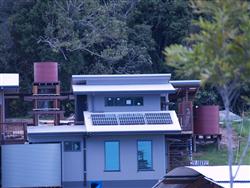 ACS student comment: "I am finding it interesting and educational - it covers the primary facts and then encourages you to learn the details through the assignments and contacting numerous organisations involved in environmental issues." Jasmine Dungey, Aust - Conservation and Environmental Management course.
ACS student comment: "I am finding it interesting and educational - it covers the primary facts and then encourages you to learn the details through the assignments and contacting numerous organisations involved in environmental issues." Jasmine Dungey, Aust - Conservation and Environmental Management course.
Some people will tackle this to enrich their own understanding and ability to live in harmony with the environment; while others may use it to lay a foundation or enhance career prospects.
COURSE STRUCTURE
There are 8 lessons as follows:
1. An Introduction To Ecology
- Spaceship Earth
- Conservation; Use of Resources, ecological value, economic value, genetic diversity
- Overkill
- Urbanisation
- Basic Ecology
- The Ecosystem
- Constituents for the Ecosystem
- Ecological Concepts
- The Web of Life; climate, producers, consumers, decomposers
- The Food Web
- Habitat and Niche
- Humans in the Environment
- Energy Flow
- Imbalances
- The Greenhouse Effect and Global Warming
- Climate Change
- El Nino
- International Efforts to Counter Climate Change; IPCC, UNFCC, Kyoto Protocol, Copenhagen Summit, Worldwatch Institute, etc
- Terminology
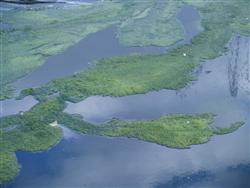 2. A Perspective On Environmental Problems
2. A Perspective On Environmental Problems
- History of Conservation
- Natural Resources; Renewable, Non Renewable
- Goals of Conservation
- History from Industrial Revolution to WWII
- WW2 and Post War Period
- International Conservation
- Deforestation
- Loss of Agricultural Land
- Loss of Biodiversity
- Endangered Water Supplies
- Exhaustion of Non Renewable Resources
- Political and Economic Issues of Conservation
- Environmental Damage in Free Economies
- Pollution in Planned Economies
- Supply of Resources
- Limits to Growth
3. Pollution and Industry Effects On The Environment
- Nature and Scope of Pollution
- Industrial Pollution
- Types of Pollutants
- Effects of Pollution
- Nuclear Pollution
- Sick Building Syndrome
- Asbestos Fibre
- Urbanisation
- Energy Alternatives
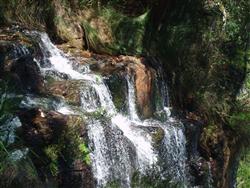 Deforestation
Deforestation- Nuclear Energy, Hydro Power, Solar Energy, Wind, Waste Power
4. Water and Soil
- Introduction
- Dams
- River Catchments
- Wetlands
- Water Pollution
- Recycling
- Desalination
- Water Environments
- The Hydrological Cycle; Infiltration, Rainfall, Evaporation, Effective Rainfall, etc
- Water and Plant Growth
- Keeping Water Clean
- Sewage Treatment
- Soil; pH, texture, structure
- Land and Soil Degradation;
- Loss of soil fertility
- Erosion
- Salinity
- Soil compaction
- Soil acidification
- Build up of dangerous chemicals
5. Vegetation Conservation and Management
- Value of Trees
- Commercial Value of Trees
- Rain forests
- Forest Systems and Biomass
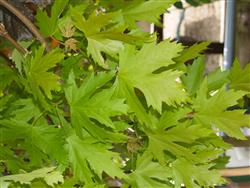 Forest Conservation
Forest Conservation- Trees and the Environment
- Environmental consequences of Deforestation
- Afforestation
- Classification of Forests
- Desertification
- Acid Rain
- Environmental Weeds
- Strategies for Preservation of Native Grasslands
6. Animal Conservation & Management
- The Human Animal
- Urbanisation
- Wildlife
- Threatened Species
- Invasive Species
- Wildlife Management; approaches, preservation, conservation, goals
- Wildlife Habitats
- Water Management for Wildlife
- Wildlife Surveys
7. Marine Conservation and Management
- Estuaries
- Fisheries; stock management, assessment, biomass, stock management methods
- Conservation of Sandy Shores
8. The Future
- Tourism and the Environment
- Ecotourism
- Ecologically Sustainable Development (ESD)
- Framework for ESD
Each lesson culminates in an assignment which is submitted to the school, marked by the school's tutors and returned to you with any relevant suggestions, comments, and if necessary, extra reading.
What you will do in this Course
Here are some examples of what you may do:
- Describe ecological processes and associated sustainable management techniques.
- Investigate a specific environmental problem and provide possible solutions.
- Evaluate the relationship between industry and pollution.
- Discuss principles of water and soil management.
- Select a specific type of plant that is endangered or an environmental problem and submit a case study.
- Explain animal conservation strategies, including protection legislation, breeding programs and habitat conservation.
- Discuss a specific issue that applies to marine conservation.
- Develop profiles of three different conservation and/or environment lobby group organisations and procedures used in promoting their cause.
Duration: 100 hours
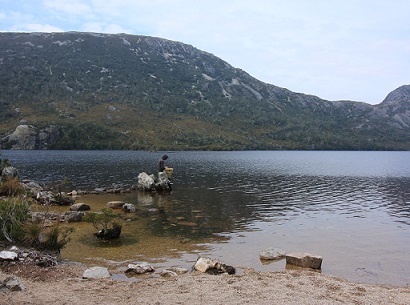 Learn to Conserve our Natural Resources Better
Learn to Conserve our Natural Resources Better
Conserving the natural resources of the planet earth has been desirable since ancient times. However, throughout history the basic principles of the use of natural resources have been ignored, sometimes with disastrous results. For example: major losses such as the silting of rivers and estuaries, and the flooding of lowlands, have been caused by the destruction of forests and grasslands protecting watersheds. This is apparent mostly in Northern China and in Asia near the rivers Tigris and Euphrates. Large areas of Northern Africa and the Middle East have been rendered barren by many centuries of uncontrolled livestock grazing. Lands have been left barren by unwise cultivation and the excessive use of woody plants for fuel that have been cut down and not replanted.
In more recently developed areas of the world, similar damage to the environment has, or is occurring. This is sometimes due to the unwise introduction of species into new environments eg. sheep and cattle introduced in to Australia with their 'hard' hoofs compared to the 'soft' hoofs of native kangaroos.
Throughout the world this presents severe conservation factors, affecting all nations, large and small. International cooperation has occurred in certain areas, but this cooperation must be extended to all areas of the environment, especially of those species classified as endangered.
In the seventeenth and eighteenth centuries, conservation was regarded as the management of a single economically valuable natural resource, such as forests, soil, fauna and flora. However, now conservation is reflected in an increasing understanding of ecology. Ecology is the science of the relationships between living things and their environment. Modern conservation has been defined by some as:
The management of the human use of the environment so that it may yield the greatest sustainable benefit to present generations, while maintaining its potential to meet the needs and aspirations of those generations to come.
While humans have incredible creative abilities, unfortunately they also have incredible destructive abilities, with many humans thinking that the resources of the planet are there to be plundered for their own good. Conservation is not only concerned with the basic support of human life, but also with the quality of life. Human activities can profoundly change the face of our planet, and can irreparably damage or destroy natural resources upon which human well-being and survival depend.
There are many conservationists, however, who see this idea of conservation as being extremely self-centred, that in fact humans are only just one species on this planet, and that the resources of the planet are not the 'property' of humans, but to all organisms on this planet. Any management and use of the natural resources of the planet must therefore take into consideration the needs (i.e. food, water, shelter, etc.) of not just humans, but other organisms as well. This idea can be carried further, in that many conservationists see that such regard for the needs of other organisms is not only desirable from a moral point of view, but beneficial, even necessary in the long term for human survival on this planet.
WHY WOULD YOU STUDY THIS COURSE?
It provides a foundation for working and living better with your environment.
- Use it to improve your employment or career possibilities
- Develop an expanded and more realistic perspective on working in environmental conservation
- Be more capable in an existing job, and more prepared for new challenges and opportunities
- Use these studies as a stepping stone to more advanced learning through further study or work experience.